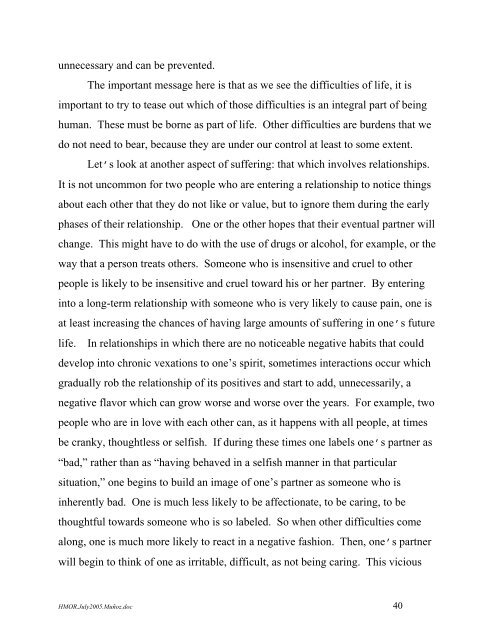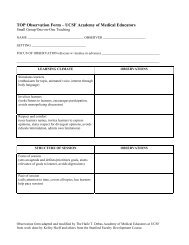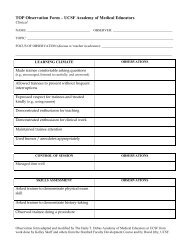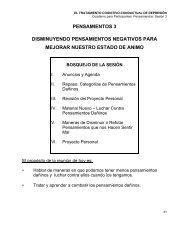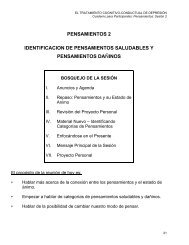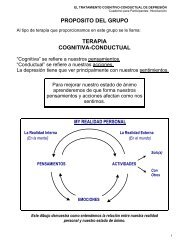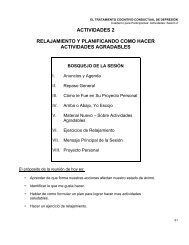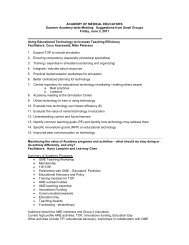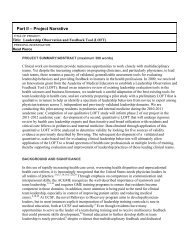The Healthy Management of Reality - Stanford University
The Healthy Management of Reality - Stanford University
The Healthy Management of Reality - Stanford University
You also want an ePaper? Increase the reach of your titles
YUMPU automatically turns print PDFs into web optimized ePapers that Google loves.
unnecessary and can be prevented.<strong>The</strong> important message here is that as we see the difficulties <strong>of</strong> life, it isimportant to try to tease out which <strong>of</strong> those difficulties is an integral part <strong>of</strong> beinghuman. <strong>The</strong>se must be borne as part <strong>of</strong> life. Other difficulties are burdens that wedo not need to bear, because they are under our control at least to some extent.Let’s look at another aspect <strong>of</strong> suffering: that which involves relationships.It is not uncommon for two people who are entering a relationship to notice thingsabout each other that they do not like or value, but to ignore them during the earlyphases <strong>of</strong> their relationship. One or the other hopes that their eventual partner willchange. This might have to do with the use <strong>of</strong> drugs or alcohol, for example, or theway that a person treats others. Someone who is insensitive and cruel to otherpeople is likely to be insensitive and cruel toward his or her partner. By enteringinto a long-term relationship with someone who is very likely to cause pain, one isat least increasing the chances <strong>of</strong> having large amounts <strong>of</strong> suffering in one’s futurelife. In relationships in which there are no noticeable negative habits that coulddevelop into chronic vexations to one’s spirit, sometimes interactions occur whichgradually rob the relationship <strong>of</strong> its positives and start to add, unnecessarily, anegative flavor which can grow worse and worse over the years. For example, twopeople who are in love with each other can, as it happens with all people, at timesbe cranky, thoughtless or selfish. If during these times one labels one’s partner as“bad,” rather than as “having behaved in a selfish manner in that particularsituation,” one begins to build an image <strong>of</strong> one’s partner as someone who isinherently bad. One is much less likely to be affectionate, to be caring, to bethoughtful towards someone who is so labeled. So when other difficulties comealong, one is much more likely to react in a negative fashion. <strong>The</strong>n, one’s partnerwill begin to think <strong>of</strong> one as irritable, difficult, as not being caring. This viciousHMOR.July2005.Muñoz.doc 40


